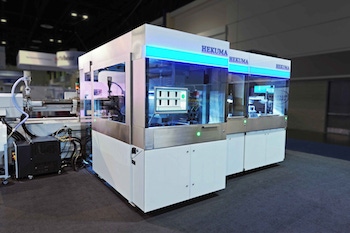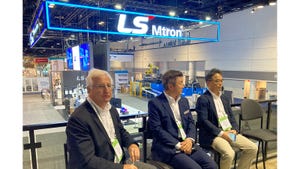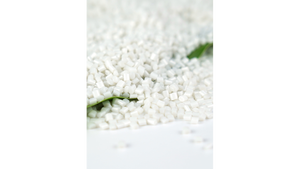Hekuma highlights time-compression benefits of modular automation at K 2016
July 6, 2016

Hekuma (Eching, Germany), a developer and integrator of automation systems for plastics processors, got some overdue attention when it premiered its modular Hekuflex concept at last year’s NPE and Fakuma trade shows. After premiering the technology at those events, where it was exhibited processing pipette tips, “medical device OEMs who wouldn’t even talk to us before began to start conversations,” CEO Bernhard Rupke told journalists gathered in Germany at the Düsseldorf Messe last week during the K 2016 Preview. The company will showcase the technology at K 2016 in October, “by highlighting a new challenge,” promised Rupke: Removing interdental brushes from a mold and inspecting and packaging them at booth B 60 in hall 15. A key takeaway for exhibitors, added Rupke, is the accelerated engineering of the system—it only took 50 days to complete—because of the modular architecture.
|
Hekuma's Hekuflex concept will be exhibited |
The scrub! interdental brush marketed by pheneo (Bremen, Germany) will be produced on an eight-cavity mold built by Hack (Kirchheim unter Teck, Germany) running on an e-motion 170/110 machine from Engel (Schwertberg, Austria). The automation system is designed to remove the eight parts from the mold, perform quality inspections and package the products in a pouch.
The interdental brush is made entirely of plastic, including the fine bristles, which are also injection molded. The process eliminates the need for a metal insert, significantly simplifying the production process and achieving a cycle time of 4.5 seconds and removal time from the mold of less than 1 second, said Rupke at the K 2016 Preview event.
Precision is a key design requirement, because of the space constraints of the mold and molded part, according to Hekuma. The grippable surface of the part is a mere 10 x 10 mm (the brush itself measures 40 x 10 x 3 mm). Vacuum suction is used to grip the brushes to prevent damage to the product. The gripper places the parts into holes on a shuttle plate; each 50th shot is diverted to a camera module for inspection with the other shots going directly to the packaging module.
The inspection system developed in collaboration with Stäubli (La Chaux-de-Fonds, Switzerland) performs a 360° review of the part. The Stäubli TX40 rotates the product in front of the camera, which captures and analyzes five images. Hekuma designed the inspection system software. The inspection time for each part takes 30 seconds.
|
The Hekuflex system was exhibited processing pipette tips at Fakuma 2015. Shown here is the parts inspection module. |
During the inspection process, the regular cycle of parts removal and conveyance continues unabated. Two shots are collected on a conveyor belt and packaged in a pouch. Once the pouches have been filled, they are welded, punched with a eurohole and are dropped onto a conveyor, which transports them to a final packaging station. The space-saving design of the “good-parts” box allows pouches to be removed manually without affecting the production cycle.
The Hekuflex concept has been in development since 2013, driven by the dual goals of a modular, time-saving design that would meet the individualized needs of customers. “Companies can start with some small elements of the system for pilot production and build on that, as needed,” said Rupke.
The modular aspect of the automation system also necessitated a rethink of the controller, noted Hekuma. The control unit has been set up so that additional production and inspection processes can be integrated into the overall process. In addition, inspection, welding and packaging processes can be removed from the overall process without requiring substantial software modifications or reprogramming.
Hekuflex ultimately reduces system engineering and installation time, allowing the customer to accelerate time to market.
Hekuma is certified to ISO 13485, the international quality standard for medical manufacturing.
About the Author(s)
You May Also Like






